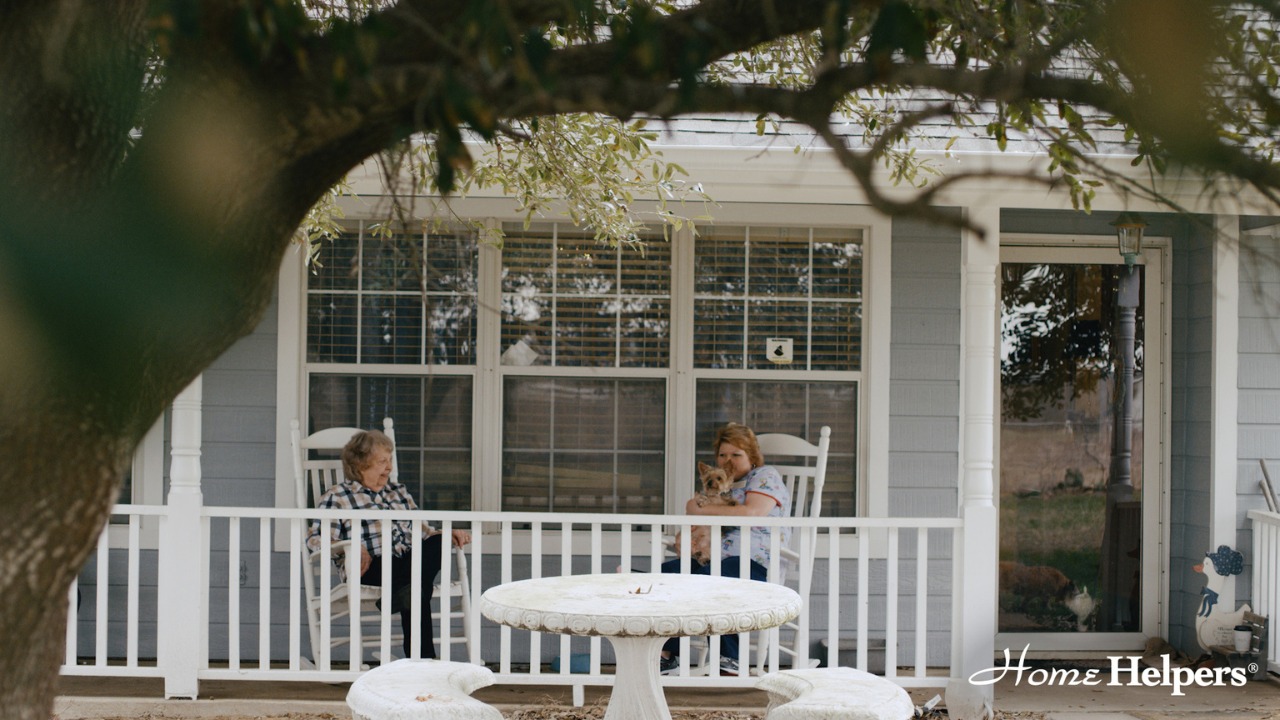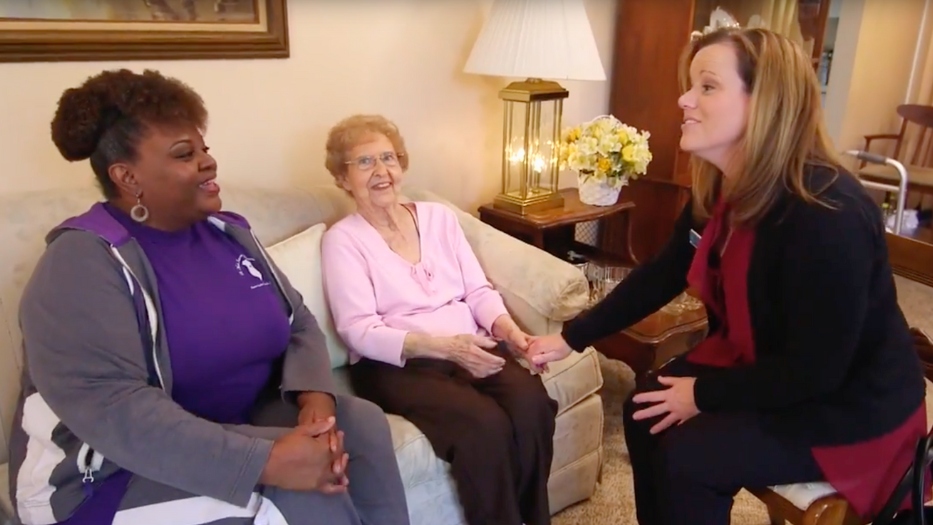How to Spot the Best In-Home Care Agency: Expert Tips Inside

Author: Home Helpers Home Care
Finding the best in-home care agency for your loved ones can be overwhelming. You want to make the right choice—one that prioritizes their safety, comfort, and overall well-being. After all, this isn’t just about hiring a caregiver; it’s about finding someone who will become a trusted part of your loved one’s daily life.
The right agency helps you feel at ease, knowing your loved one is well cared for. On the other hand, picking the wrong one can lead to stress and worry.
With so many options out there, where do you even start? It’s easy to feel lost in the sea of possibilities, but don’t worry—we’re here to guide you through the process. Whether you’re a family caregiver juggling other responsibilities or someone searching for the first time, these expert tips will help you evaluate in-home care agencies with confidence. By focusing on the details that matter, you can ensure your loved one gets the care they deserve in the comfort of their home.
Why Choosing the Best In-Home Care Agency Matters
For seniors, the home offers comfort, cherished memories, and a sense of independence. However, daily tasks can become challenging with age, making in-home care essential.
Choosing the right agency is crucial. A quality agency provides the appropriate level of care through skilled and compassionate caregivers who ensure seniors feel respected and supported. The wrong choice can lead to inconsistent care and safety concerns.
Finding the best in-home care agency is like choosing a trusted partner for your family. Taking the time to evaluate your options can provide peace of mind and the best care for your loved one. Let’s explore the key steps to making the right choice.
1. Start With Referrals and Reviews
Begin your search by reaching out to trusted people, such as family, friends, or healthcare providers. They may have valuable experience with in-home care agencies that can help guide your decision. Their insights can provide valuable starting points and save you time by narrowing down your options.
In addition to personal referrals, explore online reviews and testimonials. Agencies often display client feedback on their websites, but these may not tell the whole story. For unbiased opinions, check third-party review sites like Google, Yelp, or the Better Business Bureau (BBB).
Pay attention to recurring themes in reviews, both positive and negative. A consistent pattern of praise or complaints can reveal much about the agency's quality of service.
Pro Tip: Don’t overlook how agencies respond to negative reviews. An agency that addresses complaints constructively and resolves issues professionally demonstrates accountability and a commitment to improvement.
2. Verify Credentials and Certifications
Ensuring the agency is licensed, bonded, and insured is non-negotiable. These credentials confirm that the agency operates legally and adheres to industry regulations. Licensing requirements vary by state, so verify the agency meets your state’s specific guidelines.
Additionally, look for certifications or affiliations with reputable organizations like the Joint Commission or the Home Care Association of America (HCAOA). These endorsements signify adherence to high standards of care.
What to Ask:
- "Are your caregivers trained and certified in CPR or first aid?"
- "Is the agency accredited by industry-recognized organizations?"
- "How often do you renew certifications for compliance?"
Why This Matters:
Credentials provide peace of mind that caregivers are qualified to handle medical emergencies and follow established protocols. Agencies with accreditations often undergo rigorous evaluations to maintain their status, ensuring quality care.
3. Assess Their Caregiver Screening Process
Caregivers are a key part of the home care experience, making it important to learn about an agency’s hiring process. Knowing how they recruit, screen, and train their staff helps ensure quality care. A thorough hiring process reflects the agency's dedication to safety and quality.
Key Questions:
- "Do you conduct comprehensive background checks, including criminal history and driving records?"
- "What qualifications do you require from caregivers?"
- "Do you offer ongoing training or certifications for specialized care, such as dementia or post-surgical recovery?"
Agencies that prioritize caregiver development through training programs often provide better care. Regular evaluations and workshops for caregivers ensure they remain up-to-date on best practices.
Pro Tip: Ask about caregiver-client matching. A good agency will consider factors like personality, interests, and specific care needs when assigning home health aides.
4. Explore Customization of Care Plans
Each senior has their own specific needs, such as assistance with activities of daily living and managing their health condition, making a one-size-fits-all approach to caregiving ineffective. A quality agency should create a personalized care plan tailored to your loved one’s health, the right level of care needed, lifestyle, and preferences.
Example: A senior with Alzheimer’s may need a caregiver skilled in memory care, while someone recovering from surgery might need help with therapy exercises, meal preparation, and chores.
What to Look For:
- A detailed assessment process involving input from the seniors, family members, and healthcare providers.
- Regular reviews and updates to the care plan as needs change.
Personalized care plans provide flexibility and ensure your loved one receives the attention they deserve.
5. Evaluate Communication Practices
Effective communication and proper case management between the agency, caregiver, and family are vital to ensure smooth care delivery. Agencies with transparent communication protocols make it easier to stay informed about your loved one’s well-being.
What to Look For:
- A dedicated care coordinator or point of contact to address concerns or questions.
- Regular progress updates, either through phone calls, emails, or in-person meetings.
- A reliable emergency contact system for urgent situations.
Why This Matters: Clear communication fosters trust and reduces misunderstandings. It also ensures you remain involved in decision-making regarding your loved one’s care.

6. Understand Their Availability and Flexibility
Life is unpredictable, and caregiving needs can change unexpectedly. The best in-home care agencies offer flexible scheduling options and backup plans to ensure continuous care.
Example: If a caregiver is unable to work their shift due to illness, a responsive agency will have a replacement ready to step in seamlessly.
What to Ask:
- "Do you provide care on weekends and holidays?"
- "How do you handle last-minute changes in the care schedule?"
Flexibility ensures that your loved one’s care is uninterrupted, even during emergencies.
7. Ask About Pricing and Transparency
Clear and upfront pricing prevents unpleasant surprises down the road. Reputable agencies provide detailed explanations of their fees and services.
Key Questions:
- "What does your hourly rate include?"
- "Are there additional charges for specialized care, like memory support or transportation?"
- "What’s your policy on billing and cancellations?"
Pro Tip: Compare pricing structures from multiple agencies to understand the market average. Be wary of agencies that are vague about costs, as this could indicate hidden fees.
8. Meet the Caregiver in Person
A positive home care experience relies on a caregiver-client relationship that thrives on trust and compatibility. Meeting the caregiver before finalizing the arrangement allows you to assess their demeanor and interaction with your loved one.
Scenario: A senior who enjoys quiet afternoon reading might feel more comfortable with a calm, soft-spoken caregiver, while an active senior might prefer someone energetic and engaging.

9. Inquire About Support Services
Many agencies offer additional support services that go beyond basic caregiving. These extras can significantly improve your loved one’s quality of life and ease the family’s burden.
What to Look For:
- Transportation assistance for appointments or errands.
- Medication management to ensure timely and accurate dosing.
- Wellness programs that promote mental and physical health.
Comprehensive support services make caregiving more holistic and convenient for families.
10. Trust Your Instincts
Finally, your intuition is a powerful tool. If something feels off during your evaluation, it’s worth exploring further. Trusting your instincts ensures that the care aligns with your loved one’s best interests.
Pro Tip: Observe how the agency responds to your concerns and questions during the selection process. A responsive and empathetic team reflects the values you want in a caregiver.
If you're considering in-home care options for your loved one, it's important to explore agencies that align with your family's needs. At Home Helpers Home Care of Bradenton, we specialize in personalized care that supports independent living and enhances quality of life. Contact us today at (941) 499-5946 to learn how we can help.
